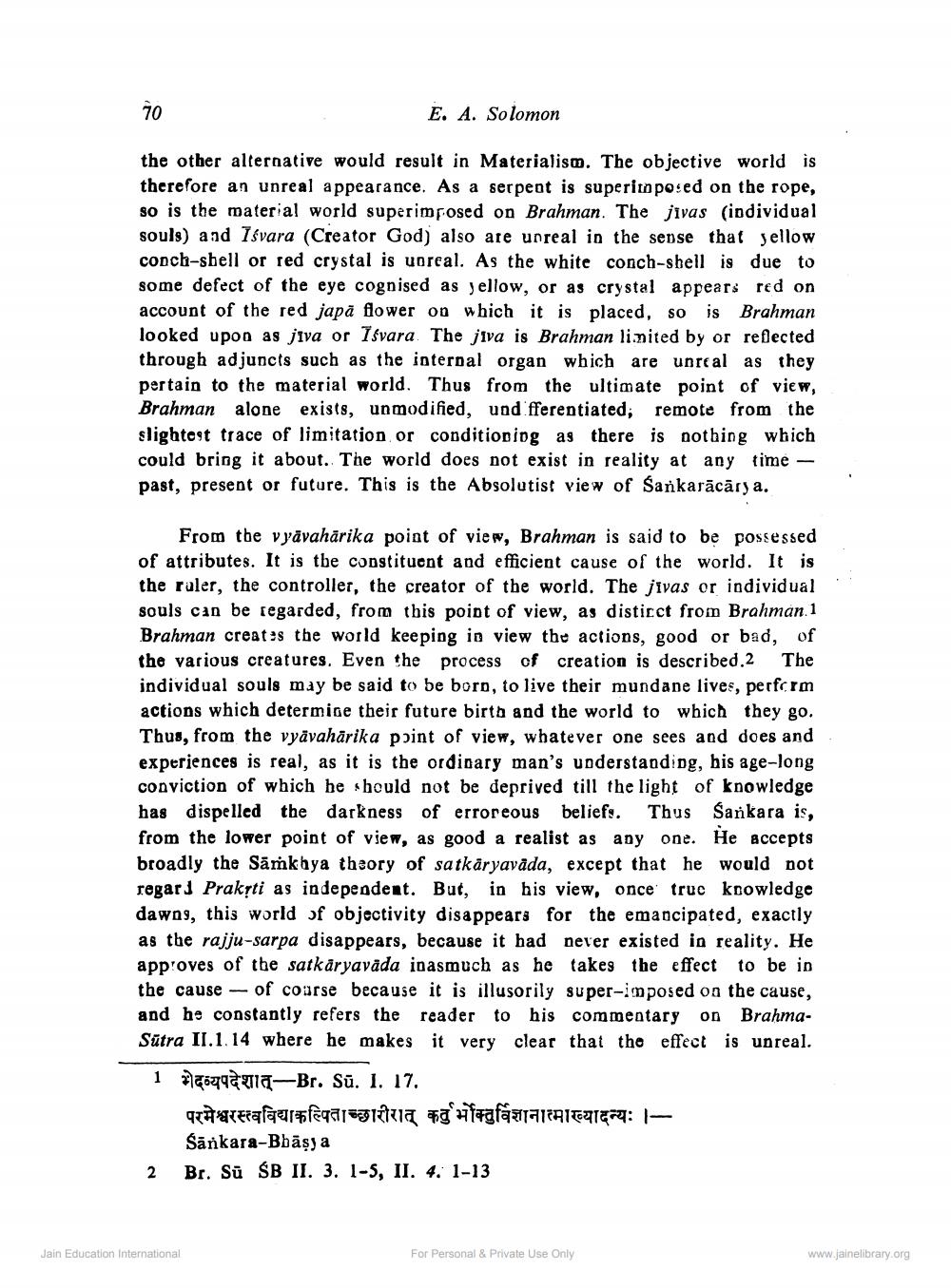________________
E. A. Solomon
the other alternative would result in Materialism. The objective world is therefore an unreal appearance. As a serpent is superito pored on the rope, so is the material world superimposed on Brahman. The jivas (individual souls) and Tsvara (Creator God) also are unreal in the sense that yellow conch-shell or red crystal is uoreal. As the white conch-shell is due to some defect of the eye cognised as yellow, or as crystal appears red on account of the red japă flower on which it is placed, so is Brahman looked upon as jiva or Tsvara. The jiva is Brahman limited by or reflected through adjuncts such as the internal organ which are unreal as they pertain to the material world. Thus from the ultimate point of view, Brahman alone exists, unmodified, und fferentiated, remote from the slightest trace of limitation or conditioning as there is nothing which could bring it about. The world does not exist in reality at any time - past, present or future. This is the Absolutist view of Sankarācārya.
From the vyāvahārika point of view, Brahman is said to be possessed of attributes. It is tbe constituent and efficient cause of the world. It is the roler, the controller, the creator of the world. The jivas or individual souls can be regarded, from this point of view, as disticct from Brahman.1 Brahman creat?s the world keeping in view the actions, good or bad, of the various creatures. Even the process of creation is described. The individual souls may be said to be born, to live their mundane lives, perfcrm actions which determine their future birth and the world to which they go. Thus, from the vyāvahārika point of view, whatever one sees and does and experiences is real, as it is the ordinary man's understanding, his age-long conviction of which he should not be deprived till the light of knowledge has dispelled the darkness of erroreous beliefs. Thus Sankara is, from the lower point of view, as good a realist as any one. He accepts broadly the Sāmkhya theory of satkāryavāda, except that he would not regard Praksti as independent. But, in his view, once true koowledge dawns, this world of objectivity disappears for the emancipated, exactly as the rajju-sarpa disappears, because it had never existed in reality. He approves of the satkāryavāda inasmuch as he takes the effect to be in the cause - of course because it is illusorily super-imposed on the cause, and he constantly refers the reader to his commentary on BrahmaSūtra II.1.14 where he makes it very clear that the effect is unreal.
1 51869921-Br. Sū. I. 17.
परमेश्वरस्त्वविद्याकल्पिताच्छारीरात् कर्तुर्भोक्तुर्विज्ञानात्माख्यादन्यः ।
Sānkara-Bbāşya 2 Br. Sū ŚB II. 3. 1-5, II. 4, 1-13
Jain Education International
For Personal & Private Use Only
www.jainelibrary.org




